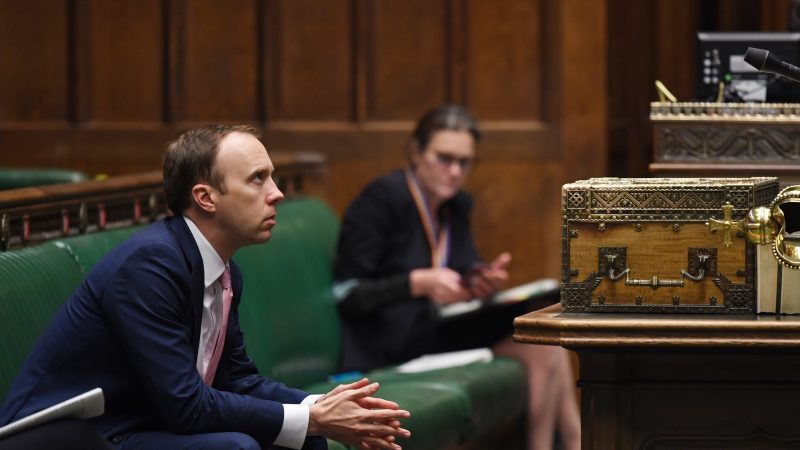
Matt Hancock has announced that people on low incomes who test positive for Covid-19 will start receiving payments of £132 for their 10-day self-isolation period, while others who have come into contact with them will receive £182 to spend 14 days of isolation. The scheme, which will come into effect on September 1st, only applies to people living in areas with a “high incidence” of the virus, and will be trialled in the North West before being expanded to include other areas. The move comes after evidence that people are not self-isolating, which should not have come as a surprise to the government – there have been plenty of warnings.
Shadow Chancellor Anneliese Dodds highlighted last month that two million people are ineligible for sick pay, and that this is undermining the track and trace programme. Earlier in August, the mayors of Greater Manchester and Liverpool joined with the TUC to call on the Chancellor to make sure workers told to self-isolate would receive pay. The mayor of London has repeatedly urged the government to financially support those staying home to prevent the spread of the virus. Even the head of the test, track and trace system – Tory Baroness Dido Harding – told a press briefing in July that she had concerns about the absence of support for people facing the need to take time off work.
But the new payment is unlikely to be welcomed by many. Considering how long it has taken the government to move on this issue of financial support, it is stunningly underwhelming. For those who test positive, they will face a choice between taking the payment of just £13.20 each day to help support themselves (and any dependents) or going out to work anyway. For those who have come into contact with someone who tests positive, they get just £14 per day – or £91 per week. Hancock is insisting that this is enough to persuade people to stay at home. To put the new figures in context, statutory sick pay in the UK – already one of the lowest in Europe – is £95.85 per week. Which begs the question, why does Hancock think that people isolating to prevent the spread of the virus should be paid less than someone claiming sick pay for `any other reason?
The benefit is also only payable to people on Universal Credit or in receipt of working tax credits. Those already receiving UC see a 63p increase in their benefit for each £1 their earnings fall if they go into self-isolation. But there are lots of low earners living in low-income households who are not on UC – large numbers of young, single people for example. If told to self-isolate by the government’s test and trace programme, people in this group will see no benefit from either the earnings protection under UC or the new benefit unveiled by the Health Secretary today.
Dodds has reminded us that the Chancellor is now offering people a benefit lower than the level of statutory sick pay – something which he himself said that he could not live on. The Shadow Chancellor has also voiced concern that it’s only being rolled for in areas with high rates of Covid-19: “The instruction to self-isolate applies to everyone in the country, so everyone should get the support they need to self-isolate.” Meanwhile, TUC general secretary France O’Grady this morning slammed the payment as “paltry”, declaring that it won’t make the difference needed. “The sooner government gets on with delivering fair sick pay for everyone, the quicker we will beat this pandemic,” she said. “It should be at least as much as the real living wage – £320 a week – so everyone who needs to self-isolate can afford to.”
The support is just not enough and it has come far too late. Hancock told us in June that abiding by isolation mandated by the NHS test and trace system was a “civic duty”. He then spent the next two months ignore the millions unable to support themselves while isolating, and unable to claim adequate help from the state. If the government wants to see people staying at home, instead of pressing ahead and going to work, it needs to support them to do so. Workers must not be left with a choice of doing the right thing for their communities as a whole, and putting food on the table. This payment is simply too little, too late.




More from LabourList
A gory night for Labour
‘SEND reforms are a crucial test of the opportunity mission’
Delivering in Government: your weekly round up of good news Labour stories